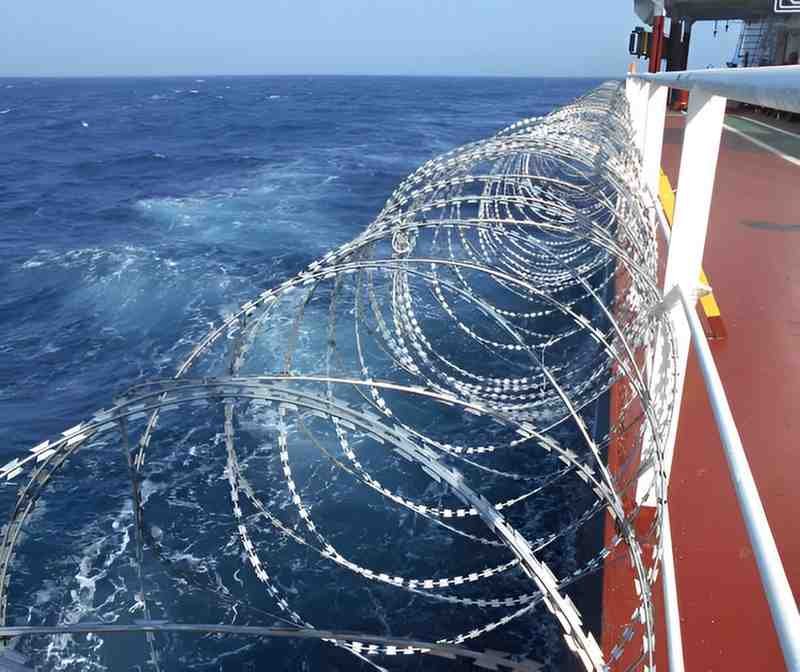The concept of a shipowner’s lien might sound technical and complex, but it plays a vital role in the maritime industry. As someone with experience in finance and law, I can tell you that understanding this legal tool is essential for anyone involved in shipping, maritime trade, or related businesses. In this article, I’ll explain the shipowner’s lien in simple terms, exploring its importance, how it functions, and its impact on shipowners, creditors, and other maritime stakeholders.
Table of Contents
What is a Shipowner’s Lien?
A shipowner’s lien is a legal right that allows shipowners to retain possession of a vessel until certain debts or claims have been paid. This lien typically arises when the shipowner has provided services or goods to a vessel, but payment has not been made. It’s a way to secure payment for services rendered, such as repairs, fuel, or storage fees.
When a shipowner possesses a lien, they can exercise their right to hold the vessel until the debt is settled. If the debt remains unpaid, the shipowner may have the right to sell the ship to recover the money owed. This lien operates as a form of collateral for the creditor, protecting them from the risk of non-payment.
Historical Context and Legal Basis
Shipowner’s liens are deeply rooted in maritime law, which has its origins in ancient trading practices. As shipping became a dominant force in global trade, the legal framework needed to address the unique nature of maritime transactions. A shipowner’s lien was introduced as a means to ensure that shipowners would be compensated for services provided to a vessel.
Under admiralty law, which governs maritime matters, a lien gives shipowners the legal authority to retain control over a ship until outstanding debts are paid. The exact laws governing shipowner’s liens may vary from country to country, but they are generally governed by international conventions such as the 1952 Arrest Convention and domestic laws like the United States’ Maritime Commercial Instruments and Liens Act (MCILA).
How Does the Shipowner’s Lien Work?
The functioning of a shipowner’s lien is based on a few fundamental principles:
- Nature of the Debt: The lien typically arises from specific services provided to the ship. Common examples include:
- Repairs or maintenance performed on the ship
- Fuel, provisions, or other supplies delivered to the vessel
- Port charges or storage fees incurred by the ship
- Retention of Possession: The most crucial element of a shipowner’s lien is the ability to retain possession of the vessel. A shipowner has the right to physically control the vessel and prevent it from leaving port until the debt is settled.
- Priority of Claims: The priority of claims under a shipowner’s lien depends on the jurisdiction and the nature of the debt. Some debts, such as those related to wages for crew members or for repairs to the ship, may have higher priority over others.
- Enforcement of the Lien: If the debt remains unpaid for an extended period, the shipowner can seek legal action to sell the vessel and use the proceeds to satisfy the outstanding debt. This is often done through a judicial sale in admiralty courts.
Types of Liens in Maritime Law
While a shipowner’s lien is a broad category, there are other types of liens that can arise in maritime law. It’s important to understand how these different liens interact, especially if you are dealing with multiple claims on a vessel.
1. Possessory Lien
A possessory lien is the most common form of shipowner’s lien. It arises when the shipowner provides services or goods to the vessel and retains possession until payment is made. This lien doesn’t require a formal legal action to take effect; rather, it’s established by the shipowner’s possession of the vessel.
2. Maritime Lien
A maritime lien, in contrast, is a more specific type of lien that attaches to a vessel automatically when a certain type of claim arises. For example, if a shipowner fails to pay a crew member’s wages or if the vessel causes damage to another vessel, a maritime lien may be placed on the ship.
Unlike a possessory lien, a maritime lien follows the ship even if it changes ownership. This means that the ship can be sold, but the lien remains with the vessel, allowing the creditor to still claim payment from the new owner.
3. Statutory Lien
Statutory liens are created by law, such as the United States’ Maritime Commercial Instruments and Liens Act (MCILA). This law grants a shipowner the right to place a lien on the vessel for unpaid services or goods provided.
How Shipowners Can Use Their Lien to Secure Payment
The process by which shipowners use their lien to secure payment involves a few steps. Let’s break down these steps to understand how it works:
1. Creating the Lien
To create a shipowner’s lien, the shipowner must provide a service or good to the ship and ensure that payment has not been made. Examples of situations where a lien could arise include:
- Performing repairs to the ship while it is docked at a port.
- Delivering fuel or provisions to the ship during a voyage.
- Storing the ship in a harbor for an extended period.
Once these services are provided, and payment has not been made, the shipowner automatically has the right to place a lien on the vessel.
2. Retaining Possession of the Ship
The key to enforcing a shipowner’s lien is possession. The shipowner must maintain control over the vessel. If the ship leaves port without payment, the lien may be weakened, and the shipowner may lose their claim to the vessel. Therefore, the shipowner must take steps to prevent the ship from departing until the debt is resolved.
3. Filing for Legal Action
If the debtor fails to pay the debt and the shipowner decides to sell the vessel to recover the money owed, the shipowner may need to file a lawsuit in an admiralty court. The court will then authorize the sale of the vessel. The proceeds from the sale are used to pay off the debt.
In some cases, the shipowner may be able to sell the vessel without a court order, particularly if the ship is located in a jurisdiction where judicial sale is allowed without prior approval.
Shipowner’s Lien vs. Other Liens
In the context of securing payment, shipowner’s liens can be compared to other types of liens that might arise in various industries, such as mechanic’s liens, landlord liens, or mortgage liens. To provide a clearer comparison, I’ve created a table below to highlight the key differences between the shipowner’s lien and other common lien types.
| Type of Lien | Enforceable By | Applies To | Requires Possession | Can Be Transferred |
|---|---|---|---|---|
| Shipowner’s Lien | Shipowner or creditor | Vessel and related services | Yes | Yes |
| Mechanic’s Lien | Contractor or supplier | Property under construction or repair | Yes | Yes |
| Mortgage Lien | Lender | Property, typically real estate | No | Yes |
| Landlord’s Lien | Landlord | Tenant’s property (furniture, etc.) | Yes | No |
Real-Life Example of a Shipowner’s Lien
Let’s walk through a real-life example to see how a shipowner’s lien might work in practice:
Scenario:
Imagine a shipping company, “Blue Wave Shipping,” owns a cargo vessel, the “Sea Explorer.” The company contracts a shipyard, “Maritime Repairs Ltd.,” to perform repairs on the vessel after it sustains damage during a storm. The repairs cost $500,000, but the shipping company fails to pay the shipyard.
In this case, Maritime Repairs Ltd. can place a shipowner’s lien on the vessel. The lien gives the shipyard the right to retain possession of the Sea Explorer until the debt is settled. If the shipping company doesn’t pay within a reasonable period, Maritime Repairs Ltd. can seek a judicial sale of the vessel to recover the $500,000 owed.
Conclusion
A shipowner’s lien is an important legal tool that helps protect shipowners and service providers in the maritime industry. It ensures that payment for services rendered, such as repairs or provisioning, is secured. By understanding how this lien works and its enforcement mechanisms, stakeholders can better navigate the complexities of maritime commerce.





